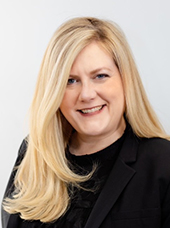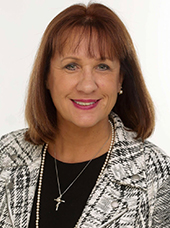9 minutes
Getting started early on financial planning and learning how to negotiate for salary and benefits are critical first steps to long-term financial health for women.
Gaps in financial literacy and a lack of preparedness when negotiating for salary and benefits during the hiring process can have a costly impact on female executives.
The well-documented gender wage gap in the United States puts working women behind the curve on hitting their goals for salary, savings and benefits. Women today earn an average of 84% as much as men—amounting to a difference of $10,000 per year—and it takes women 15 months to earn what men are able to make in 12 months, according to the U.S. Department of Labor. And it’s worse for women of color.
The gender pay gap doesn’t just impact women during their careers, however; it also persists into and impacts retirement savings. U.S. News reports that the median 401(k) account for women is 65% lower than the balance for men, according to recent research from T. Rowe Price. CNBC reports that women have about 30% less saved by the time they retire.
When starting from behind like on pay, women often can’t afford to mismanage their money, but financial illiteracy can play a big role in putting women even further behind financially. The estimated average amount of money lost by all Americans due to a lack of personal finance knowledge was $1,819 in 2022, or a total of $436 billion, according to research by the National Financial Educators Council.
Though women—even in the credit union industry—continue to face pervasive financial as well as workplace culture challenges, they can nevertheless take many steps to improve their financial planning and obtain well-earned benefits.
Focusing on Wealth Management
The first thing women can do to educate themselves on personal finance is to find their own financial adviser—and they also should take the time to research and ensure their adviser is a good fit, according to Danielle Scodellaro, executive benefits specialist for CUESolutions provider TruStage/Cuna Mutual Group Retirement Solutions, based in Madison, Wisconsin.
“When you're looking for a financial adviser, [they should be] somebody who takes an interest in not only your life, but also the people and things that surround your life—your family, your friends, your community, your job, the people you're trying to take care of, like your parents and so on,” she says. “Finding a financial adviser who fits who you are is really step one in taking control of your future, because that person is going to be your quarterback in coordinating all of those things in your financial world that you need to accomplish and setting out the roadmap of how to get from point A to point B.”

Scodellaro notes that it’s important for women to establish and maintain their own relationship with a financial planner and not leave that task to a spouse or life partner. Women who create their own relationship with a trusted financial adviser can give that person a better understanding of their career aspirations and financial needs, she explains.
For younger women who aspire to executive roles in their careers, it’s never too early to start the wealth management journey. While some may equate financial planning with asset management, women should keep in mind that wealth planning is a broader effort involving all aspects of their financial sphere—from accumulation and investing to protection, distribution and estate planning.
“My advice to younger people is: Don't be afraid of the terms ‘wealth planning’ or ‘financial planning,’” Scodellaro says.
“Some younger leaders automatically think, ‘I don't make enough money, I have too much debt; I'm not the person that can go to a financial planner today.’ That thought leads to a lot of younger women not talking to anybody or focusing only on putting money into the company 401(k) for the company match,” she says. “But financial planners are there to help you through all stages of your life, from graduating college and paying off that debt, to saving and accumulation protection. It’s a long-term relationship that can start at any given period.”
Talking About Money, Knowing Your Worth
Female executives can and should increase transparency around compensation discussions by talking more openly with each other about salaries and personal finance matters in general.
“We were told our whole lives not to talk about money, but the reason we were told that is because it serves the boss,” says Kathleen Craig, founder/CEO of Plinqit, an Ann Arbor, Michigan-based fintech company serving banks and credit unions nationwide. “We were told not to share our salary with our coworkers—because then the company can pay you not what the position is worth, but the least amount you know to ask for.
“We need to be willing to ask both men and women and then share with each other. ‘Hey, I'm a VP and this is what I make,’” Craig continues. “It’s uncomfortable in the beginning, but it’s important that we do it to get to pay equity. If we don't have these conversations, we as women don’t know where the bar is.”

Ideally, women should do their homework ahead of negotiating or accepting a position by talking to recruiters to learn about compensation standards and the going rate for desired positions, says Tammy O’Hara, an executive benefits consultant with CUES Supplier member PARC Street Partners, a financial services company serving credit unions and non-profits.
Researching salary surveys, talking with executive coaches and developing relationships with mentors are other good ways for women to gather intelligence well before starting the interview process.
O’Hara recommends two resources to help women build their network and, in turn, their ability to crowd-source compensation and financial planning knowledge:
- The Global Women’s Leadership Network, which offers many valuable networking and mentoring resources; and
- The CUES Women’s Business Network, which connects credit union women executives, business owners and service providers.
“Have all of that research in your back pocket and build that network so that you have someone to turn to and go to for advice,” she says. “Reach out to other females that have positions like the one you’re in or that you’re trying to be in. See what the pay is and don’t be afraid to ask for it.”
O’Hara cautions that women knowing their worth and believing it are not necessarily the same thing.
“There’s imposter syndrome—thoughts like ‘I have this job because I've been here 20 years and they probably would’ve hired someone else if I wasn't here.’ You need to get rid of that. Own your right to be in that position. You earned it,” she says.
Ask for a SERP
When negotiating for executive compensation benefits, women should consider asking for a supplemental executive retirement plan, or SERP, from their current or potential employer.
SERPs help even the income playing field and provide financial security for women in retirement—especially for women whose base salaries have not matched those of their male counterparts over the course of their careers. Offered to key executives as a hiring incentive in addition to the organization’s standard retirement savings plan, SERPs typically take effect only after a specified period of time to ensure an executive hire is a good fit for the organization.
“Don’t be afraid to ask for it, because you don’t get what you don’t ask for,” says O’Hara. “Have it put in your contract to receive it within X number of months, especially for CEO positions. Primarily, we’re seeing that probably 90% of new CEOs have it right in their agreement that the board will implement a SERP within 12, 18 or 24 months.”
Aside from benefiting the executive, SERPs can also be in the best interest of the employer, because they make it harder for recruiters to poach CEOs and other executives to competing financial institutions.

Women too often have a problem asking for what they deserve, Scodellaro says, whether it’s salary, SERPs or other executive benefits. Credit union leadership should be sensitive to this as a cultural issue during the hiring process.
“Male leaders typically have no problem saying, ‘This is what the industry does, and this is why you should do it,’ where women more often want to be asked: ‘are you interested in this?’” she observes. “Where male colleagues often have no problem asking for the raise, asking for more benefits, or countering an offer on a contract, women might be uncomfortable asking for those things or think it will make them appear self-serving.”
“That's something everybody in the credit union industry needs to understand. It can be a distinct cultural difference between men and women: what women feel we deserve and how we approach receiving that, versus how our male counterparts approach it,” Scodellaro adds. “Just understanding that, first and foremost, is where credit unions can start with women, by saying, ‘Why don't we approach them about it? Or why don't we bring in a consultant to help us with [compensation] conversations?’”
Hiring Transparency
Credit union leadership can support equity in salary and executive benefits for women, as well as help combat the effects of the gender pay gap for those professionals, by promoting transparency during the hiring process.
CEOs, for example, can take a different approach to how salaries are set by valuing roles properly from the point of hire, instead of attempting to acquire executive talent at a “discount,” Craig suggests.
“When a woman applies for a role in my organization, I don't ask her what she made at her previous role; I ask her what she expects out of this position and I look at what the market rate for this position is. I do this for men, too, because [otherwise] that's one of the ways we trap people into making less. They started at less at one point, and then every subsequent company that they worked for asked them, ‘What do you make now?’ and paid them a small percentage more for the new role, even if the position at market value should be a significant increase,” says Craig.
Organizations often try to hire people as cheaply as possible instead of asking, ‘What should we be paying for this role?’ “Shifting that mindset is key,” Craig notes. “It’s incumbent on all of us, men and women, to participate in changing the culture.”
Credit unions can also increase transparency during the recruitment process by publishing their pay scales. “Credit unions that have a pay scale published tend to have less of an inequity situation than others,” says O’Hara.
Credit union CEOs who feel their organizations’ pay isn’t where it should be to attract and retain the best talent should consider approaching their board about doing a compensation study for their geographic region, O’Hara suggests. This initiative may be appealing to boards on more than one level, because it can help secure top talent for not only the executive team but also the staff as a whole.
(Editor’s note: CUES also offers annual executive compensation and employee salary survey reports as a key recruiting and retention tool. Learn more about them at cues.org/ecs and cues.org/ess.)
Ultimately, it’s in a CU’s best interest to help its female executives and all of its staff members thrive financially, O’Hara notes. “The credit union industry is about people helping people, and it certainly is not limited to our membership; it means helping each other, as well.” cues icon
Amy Freed Stalzer, CAE, is a writer focused on finance, technology, aviation and healthcare.





